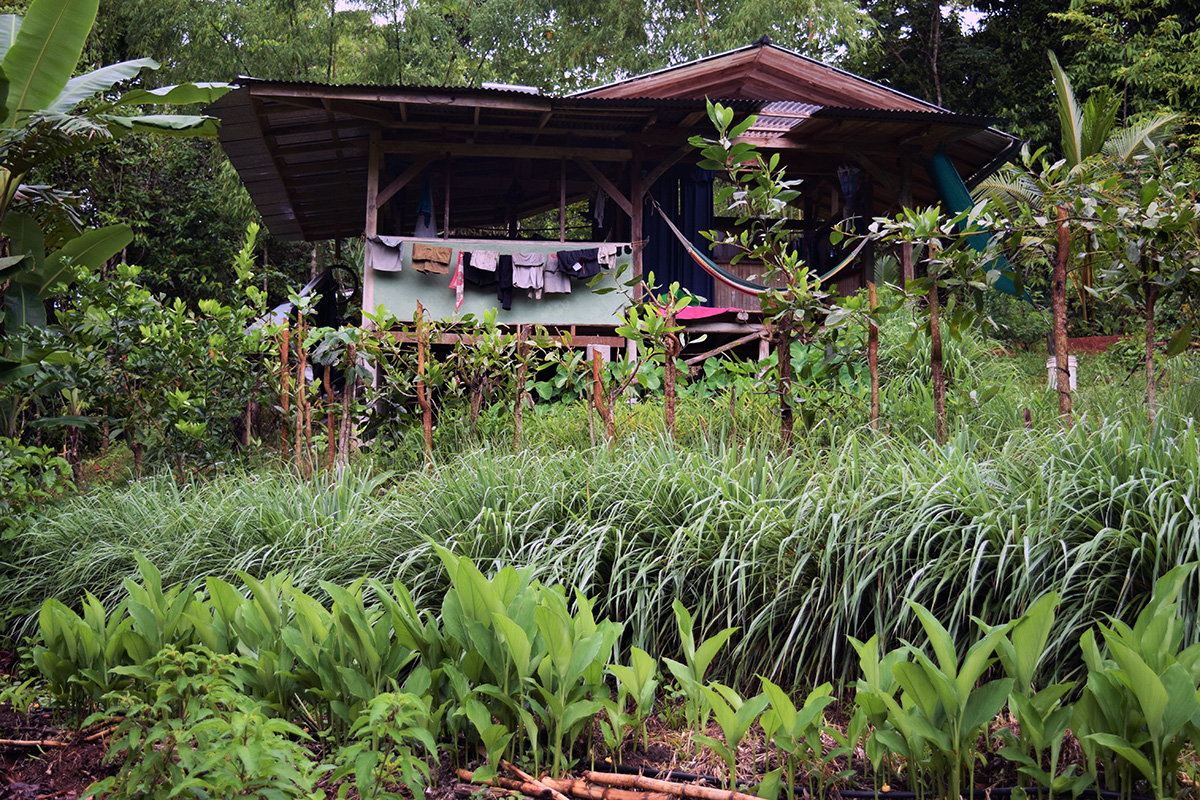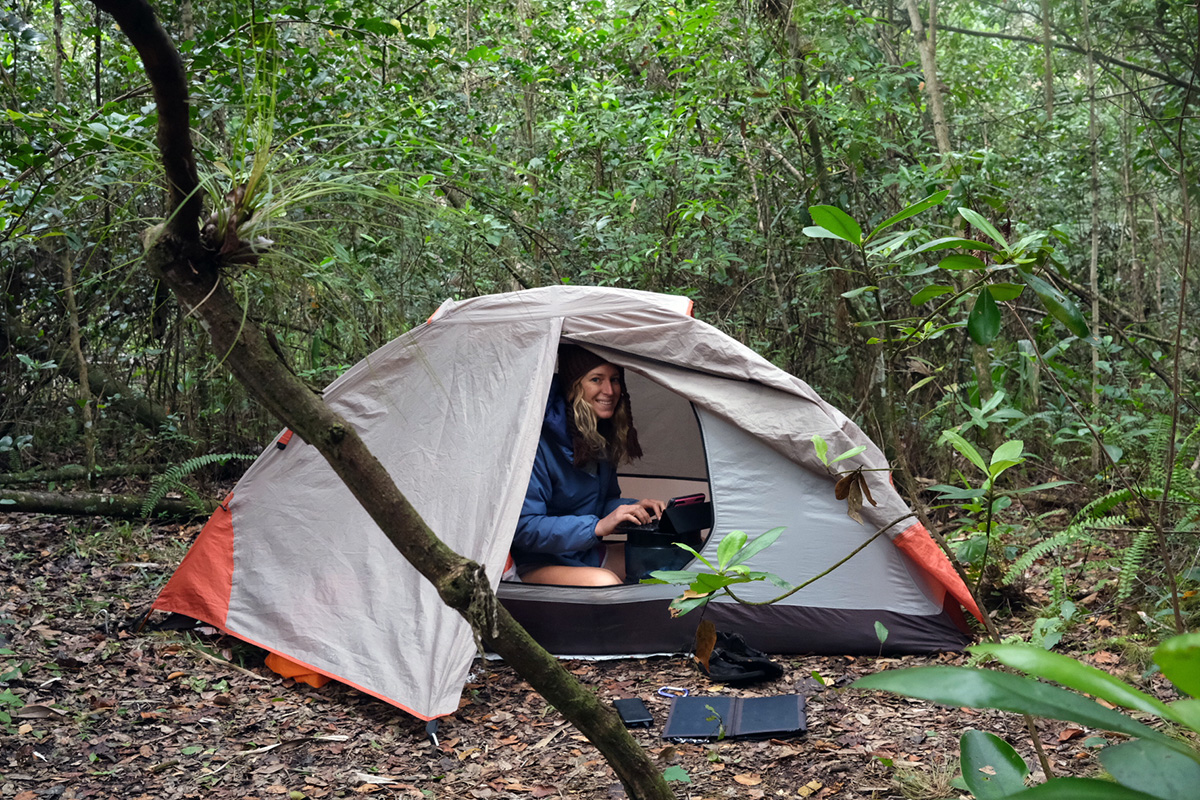Women’s Stories Shape The World
When I was a kid, I read stories about men who traveled around the world. Men walked or cycled across countries. Men slept under the stars and foraged food. Men found solace, identity, and communion in the wilderness. These stories captured my imagination and my sense of wonder. I wanted to be just like those men.
By the time I was a teenager, I’d decided that I’d also go on my own adventures. One day I sat in the living room with my family and told them my big plans to wander around the world, living out of my backpack. Somebody said something about me being a girl. “It’s okay,” I said, standing up. “People will think I’m a man.” I tugged my pants around my hips and strutted back and forth, practicing my “man walk.” We all laughed.
In the years that followed, I did, actually, pack a bag and go on my own adventures. I hitchhiked across the U.S. and Mexico, backpacked across mountains, rode my bike across entire countries. I loved the feeling of being free in the world, a body in motion. I didn’t try to dress or act like a man. But I did feel, deeply, like an imposter.
I loved riding into the wind, setting up camp in the wild, cooking over an open fire. But at the same time, I felt terrified of what it meant. I asked myself, over and over, “What is wrong with me?”
I had learned that to be a good person, I had to be a good woman. Good women are partners first, and full people second. Good women ask permission and follow directions. Good women make themselves small and apologize for it. Good women do not go out into the wild, alone, when everyone tells them not to, and then actually enjoy it.
These ideas were my reality. I did not see the social expectations of patriarchy as an external force to fight against. Rather, they were truths that lived inside me and tore me apart. When I sat under the stars at night, dirty and feral, I felt at home in nature. But I did not feel at home as myself. I did not fit into any of the stories I knew about how to be a good person and a good woman at the same time.
Eventually I did what any wayward, feral wanderer might do — I hitchhiked to Central America and became the co-director of a remote ecovillage in the jungle. A small group of us managed an array of community facilities and a bustling education center. We built our own houses out of mud and bamboo and ate food that we grew or bought from local farmers. Most of us didn’t own a cell phone, and we rarely used the internet. Each year, we hosted hundreds of people from around the world who wanted to learn and practice skills in sustainable living. In the evenings, we all joined hands and gave thanks for each others’ presence. It was a beautiful, radical paradise. Finally, I felt like I made sense.

But as the years passed, that feeling morphed into a familiar sense of doubt. Even in this tiny jungle commune, expectations for how to be a person were different based on gender. Women were funneled into assistantship positions and kitchen work. Our male instructors used their roles to groom female students for sex. I watched the women on our leadership team serve the men around them, and I watched those men accept that service as if it were their due. Women who protested were gaslighted or excluded. As the years passed, my idyllic paradise became a personal nightmare. I felt terrible every day about myself. In the context of this beautiful community, it was extremely confusing.
When I feel confused about something, my instinct is to do further research. I threw myself into studies of power dynamics, effective communication, and group governance. Once a year, I bought books in the U.S. and carried them in a backpack to the ecovillage in Central America.
Each resource led me down a new path until I finally started reading about gender. I read books by Rebecca Solnit, Soraya Chemaly, Ijeoma Oluo, Kate Manne, Rebecca Traister. These women’s words gripped me. I saw myself, and ourselves, in their stories. It changed me from the inside out.
Eventually I bought my first smartphone and started downloading resources directly to the jungle. In the evenings, I sat in my tiny bamboo cabin and read stories about women biking, hiking, and kayaking around the world. One day I listened to a Tough Girl Podcast about a woman named Olivia Round, who had cycled alone across the U.S. to overcome her lifelong fear of men. It struck me.
I went to Olivia’s website and scrolled through her writing. In addition to her own stories, she hosted interviews by dozens of women who had ridden long distances around the world. There was an interview by Jasmine Reese about cycling across the U.S. with her violin and a dog named Fiji. Women cycled alone, with families, with pets, with something to overcome, with nothing stopping them. Each story made me think, “Wow! Wow! Wow!” Women did this, and talked about it, and wrote about it! I really hadn’t known.
I was so excited by Olivia’s stories that I immediately sent her a fan letter. She wrote back with a lovely message and invited me to write an interview for her website. I wrote two. It was a revelation: I had stories, too.
A couple of months after I wrote those interviews for Olivia, the ecovillage erupted in a new spiral of abuses by male leadership. Half of our leadership team resigned, including me.
I was in my early thirties, and I’d spent nearly a decade at the ecovillage. When I left, I left everything behind — my community, my home, my career, my partner, my identity, my faith. I didn’t know where to go or what to do. I didn’t know who I was.
In that fragile time, women came to my rescue. They helped me pack my things, gave me places to stay, brought me food and steaming mugs of herbal tea. They listened. They spoke. They shared their own stories of love, fear, abandonment, strength. Their stories were a nest that held me. And they etched into my being a new inner reality, a reality where women’s voices and women’s feelings really mattered.
I put my belongings in a few old suitcases and headed up into the mountains. Two of my friends were caretakers at a nearby writing retreat called Choza Del Mundo. The retreat was nestled on a ridge deep in the jungle. It had a few rustic buildings, an outdoor kitchen, and an open-air palapa with a desk. For the next four months, I lived on that mountain and did what I now realized so many other women were already doing — I started writing my own stories. I have been writing my own stories ever since.

Stories create possibilities and shift probabilities. They teach us how to think and feel about who we are and who we want to be. They give us empathy and they give us agency. Black women’s stories, trans women’s stories, Indigenous women’s stories; stories from across the spectrum of gender and sexuality; stories told from a rich array of diverse experiences: these stories shape the world.
Women’s stories taught me that it’s okay to be a little bit wild. It’s okay to ride into the wind and feel joy in motion. We are all whole human beings. We get to tell our own stories about what that means.

